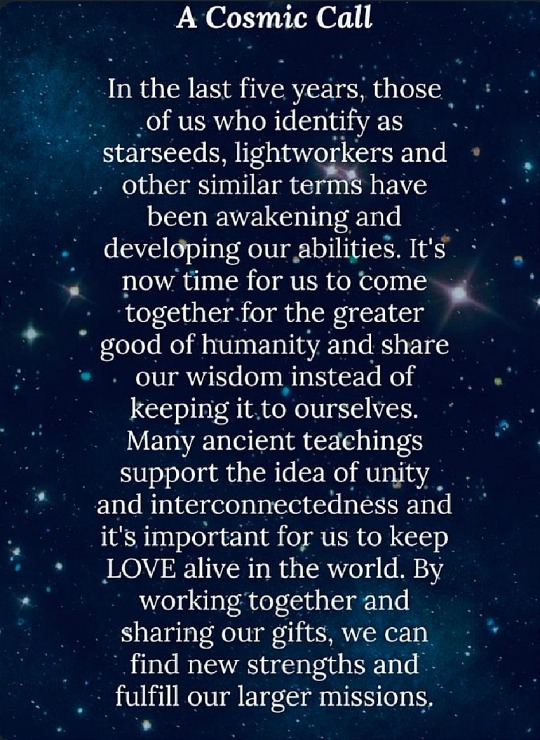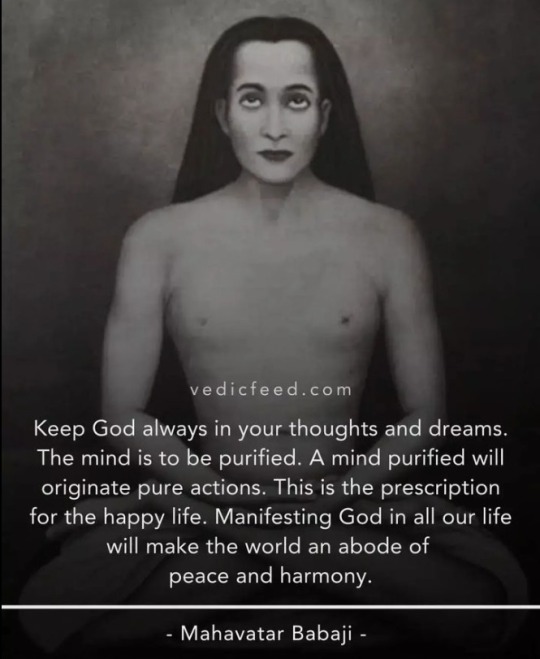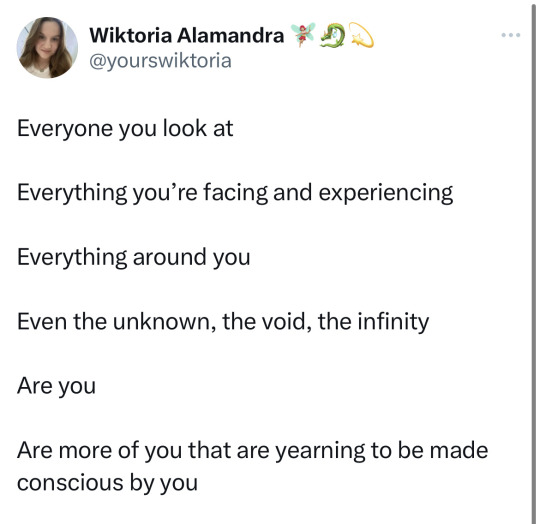#Unity of consciousness
Text
Delving into Kantian Philosophy: A Review of "The Critique of Pure Reason" by Immanuel Kant

Immanuel Kant's "The Critique of Pure Reason" stands as one of the most influential and enduring works in the history of philosophy, reshaping the landscape of metaphysics, epistemology, and the philosophy of mind. Published in 1781, this monumental treatise seeks to provide a comprehensive account of the nature, scope, and limits of human knowledge, offering profound insights into the nature of reality, the structure of the mind, and the conditions of possibility for knowledge.
At the heart of "The Critique of Pure Reason" is Kant's revolutionary concept of transcendental idealism, which posits that the mind plays an active role in shaping our experience of the world. Kant argues that the mind imposes certain fundamental concepts and categories—such as space, time, and causality—on our sensory perceptions, organizing them into a coherent and intelligible framework. Through his rigorous analysis, Kant seeks to uncover the a priori conditions that make experience possible, shedding light on the fundamental structures of human cognition.
One of the key themes of "The Critique of Pure Reason" is Kant's distinction between phenomena and noumena, or appearances and things-in-themselves. Kant argues that while we can only know phenomena as they appear to us through the filter of our cognitive faculties, there exists a realm of noumena that lies beyond the reach of human knowledge. This distinction has profound implications for Kant's philosophy, shaping his views on the limits of human understanding and the nature of metaphysical inquiry.
Moreover, "The Critique of Pure Reason" is notable for its meticulous analysis of the nature of space, time, and causality, which Kant identifies as the fundamental categories of human thought. Kant argues that these categories are not derived from experience, but rather constitute the necessary framework through which we interpret our sensory perceptions. By elucidating the synthetic a priori nature of these categories, Kant lays the groundwork for his transcendental idealism and challenges traditional empiricist and rationalist accounts of knowledge.
In addition to its groundbreaking philosophical insights, "The Critique of Pure Reason" is also celebrated for its rigorous methodology and systematic approach to philosophical inquiry. Kant's meticulous argumentation, intricate terminology, and careful exposition of concepts make "The Critique of Pure Reason" a challenging but rewarding read for scholars and philosophers alike. Kant's influence extends far beyond the boundaries of philosophy, shaping the development of disciplines such as psychology, physics, and linguistics, and leaving an indelible mark on the intellectual landscape of the modern world.
In conclusion, "The Critique of Pure Reason" by Immanuel Kant is a towering achievement in the history of philosophy, offering profound insights into the nature of human knowledge, the structure of the mind, and the limits of metaphysical inquiry. Kant's rigorous analysis, groundbreaking concepts, and systematic approach to philosophical inquiry make "The Critique of Pure Reason" a timeless classic that continues to inspire and challenge readers with its depth, complexity, and intellectual rigor.
Immanuel Kant's "The Critique of Pure Reason" is available in Amazon in paperback 24.99$ and hardcover 31.99$ editions.
Number of pages: 516
Language: English
Rating: 10/10
Link of the book!
Review By: King's Cat
#Immanuel Kant#Critique of Pure Reason#Transcendental idealism#Phenomena#Noumena#A priori knowledge#Metaphysics#Epistemology#Synthetic a priori judgments#Space#Time#Causality#Categories of understanding#Rationalism#Empiricism#Skepticism#Transcendental deduction#Transcendental aesthetics#Transcendental logic#Analytic judgments#Synthetic judgments#Appearances#Things-in-themselves#Transcendental unity of apperception#Unity of consciousness#Schematism#Idealism#Rationalist philosophy#Epistemological inquiry#Metaphysical inquiry
0 notes
Text
Delving into Kantian Philosophy: A Review of "The Critique of Pure Reason" by Immanuel Kant

Immanuel Kant's "The Critique of Pure Reason" stands as one of the most influential and enduring works in the history of philosophy, reshaping the landscape of metaphysics, epistemology, and the philosophy of mind. Published in 1781, this monumental treatise seeks to provide a comprehensive account of the nature, scope, and limits of human knowledge, offering profound insights into the nature of reality, the structure of the mind, and the conditions of possibility for knowledge.
At the heart of "The Critique of Pure Reason" is Kant's revolutionary concept of transcendental idealism, which posits that the mind plays an active role in shaping our experience of the world. Kant argues that the mind imposes certain fundamental concepts and categories—such as space, time, and causality—on our sensory perceptions, organizing them into a coherent and intelligible framework. Through his rigorous analysis, Kant seeks to uncover the a priori conditions that make experience possible, shedding light on the fundamental structures of human cognition.
One of the key themes of "The Critique of Pure Reason" is Kant's distinction between phenomena and noumena, or appearances and things-in-themselves. Kant argues that while we can only know phenomena as they appear to us through the filter of our cognitive faculties, there exists a realm of noumena that lies beyond the reach of human knowledge. This distinction has profound implications for Kant's philosophy, shaping his views on the limits of human understanding and the nature of metaphysical inquiry.
Moreover, "The Critique of Pure Reason" is notable for its meticulous analysis of the nature of space, time, and causality, which Kant identifies as the fundamental categories of human thought. Kant argues that these categories are not derived from experience, but rather constitute the necessary framework through which we interpret our sensory perceptions. By elucidating the synthetic a priori nature of these categories, Kant lays the groundwork for his transcendental idealism and challenges traditional empiricist and rationalist accounts of knowledge.
In addition to its groundbreaking philosophical insights, "The Critique of Pure Reason" is also celebrated for its rigorous methodology and systematic approach to philosophical inquiry. Kant's meticulous argumentation, intricate terminology, and careful exposition of concepts make "The Critique of Pure Reason" a challenging but rewarding read for scholars and philosophers alike. Kant's influence extends far beyond the boundaries of philosophy, shaping the development of disciplines such as psychology, physics, and linguistics, and leaving an indelible mark on the intellectual landscape of the modern world.
In conclusion, "The Critique of Pure Reason" by Immanuel Kant is a towering achievement in the history of philosophy, offering profound insights into the nature of human knowledge, the structure of the mind, and the limits of metaphysical inquiry. Kant's rigorous analysis, groundbreaking concepts, and systematic approach to philosophical inquiry make "The Critique of Pure Reason" a timeless classic that continues to inspire and challenge readers with its depth, complexity, and intellectual rigor.
Immanuel Kant's "The Critique of Pure Reason" is available in Amazon in paperback 24.99$ and hardcover 31.99$ editions.
Number of pages: 516
Language: English
Rating: 10/10
Link of the book!
Review By: King's Cat
#Immanuel Kant#Critique of Pure Reason#Transcendental idealism#Phenomena#Noumena#A priori knowledge#Metaphysics#Epistemology#Synthetic a priori judgments#Space#Time#Causality#Categories of understanding#Rationalism#Empiricism#Skepticism#Transcendental deduction#Transcendental aesthetics#Transcendental logic#Analytic judgments#Synthetic judgments#Appearances#Things-in-themselves#Transcendental unity of apperception#Unity of consciousness#Schematism#Idealism#Rationalist philosophy#Epistemological inquiry#Metaphysical inquiry
1 note
·
View note
Text
Is Conscious Creation Solipsism: Neville Goddard's Law of Assumption and the Oneness Connection
Neville Goddard’s Law of Assumption and the Oneness Connection vs Solipsism
This question is asked from time to time, and I have answered it before and the first thing to keep in mind with the Law pf Assumption is this: YOU are free to decide if LOA is solipsism or not!
But what did Neville believe? Where did he stand on this concept? Furthermore, whet even is solipsism?
Solipsism and Advaita…

View On WordPress
#conscious creation#Creative visualization#law of assumption#manifest#manifestation techniques#MANIFESTING#Mind power#neville goddard#Oneness consciousness#Self-realization#Spiritual growth#Unity of consciousness
0 notes
Text

Individuals play the game, but teams beat the odds.
~ Navy Seals motto
175 notes
·
View notes
Text
As ram dass said when you stop feeling separate from everything around you and let go of your attachment to being an individual, something amazing happens. You start to realize that you are connected to everything in existence. It's like you can experience everything at once, without being confined to one place or time.
.
#ram dass#connected to everything#attachment#individuality#existence#unity#consciousness#enlightenment#selfRealization
70 notes
·
View notes
Text
the more generous you are, the happier you are 🫶🏼
#genorosity#happiness#joy#unity#unity consciousness#divine love#flow#divine flow#mindfulness#meditation#spirituality#spiritual growth#self healing
39 notes
·
View notes
Text
"All my ghetto children look deep within, We are all created equal don't watch no skin" - Pressure Buss Pipe

#t shirt#t shirt design#reggae#Pressure Buss pipe#universe#unity#oneness#reggae lyrics#consciousness#spirituality#mindfulness
53 notes
·
View notes
Text

The rest falls into place like Magic, the moment you surrender the ego to Divine Will
#it’s a new era#unity consciousness#ascension#the divine cosmic play of consciousness#christ consciousness#new earth#age of aquarius
33 notes
·
View notes
Text
“The sage does not hoard. The more he helps others, the more he benefits himself, The more he gives to others, the more he gets himself. The Way of Heaven does one good but never does one harm. The Way of the sage is to act but not to compete.”
—Lao Tzu
#lao tzu#enlightenment#spirituality#awakening#service to others#help one another#help others#to give is to receive#giving#kingdom of heaven#humility#cooperation#expand your consciousness#volunteering#volunteer#unity consciousness#law of one#oneness#we are one#newearth#5d consciousness#spiritual ascension#spiritual knowledge#unconditional love#trust the process#universal spirit
24 notes
·
View notes
Note
How is saying the ego is your enemy toxic? What about every religion that believes in the importance of ego death?
Within particularly toxic forms of New Age and New Age-adjacent spirituality, people who have doubts or hesitations about what they're hearing are told that these thoughts and feelings are just their ego trying to resist. I'm sure you can see where this is a psychological manipulation tactic that could lead people into some very bad places.
The practical reality is, these people telling others to surrender their egos want to replace it with their ego, so other people become an extension of themselves. They usually call it "unity consciousness," but let's be real, it's the closest thing to getting assimilated into a hivemind as there is in real life.
The modern New Age movement often teaches people that if they feel uplifted and positive, then what they're experiencing is from spirit; but if they feel confused, doubtful, or fearful, then they are "in their ego." They claim that this is spiritual discernment, but in reality it's a thought-control technique; it keeps them focused on the anti-intellectual feel-good New Age stuff and makes them ignore ideas and thoughts that challenge them.
As for these other religions, I can't comment on them because I don't really have experience, but I can say that they'd need to be evaluated on a case-by-case basis.
#answered#new age#new age spirituality#ego death#ego#manipulation#spiritual manipulation#unity consciousness
24 notes
·
View notes
Text
This world lessens and diminishes, becomes maya, veil of hallucinations, as raw and rigid instincts stay unexamined but dangerously active, as unconscious violence of words and actions wants to pass as our true humane nature, as a norm...This world becomes big, heartfelt, expansive, real, as a filtering of mind, body and soul becomes a conscious effort, as a crystallization of existence, that is good habits, thoughts, feelings, behaviors that harm none but enrich become an option, where the beautiful inner meets the outer. Life is real as much as we are real. Life is an art. Each day is an opportunity. Each day demands a choice.
Vera Bousiou
#quotes#psychology#depth#self knowledge#world#self actualization#spirituality#spiritual awakening#responsibility#consciousness#life#maya#real#philosophy#wisdom#unity#crystallization#harmony#matrix
14 notes
·
View notes
Text

#daily inspiration#daily motivation#healing#heartfelt#infinity#law of attraction#love#mindfulness#positivity#quote of the day#lightworker#starseed#awareness#5d consciousness#spiritual awakening#spiritual healing#spiritual growth#spiritual connection#mindfullness#ascension#wisdom#unity#we are one
5 notes
·
View notes
Text
While we mainly follow Arno's personal conflicts, driven by cynicism brought on by grief over his personal relationships, I think a lot about how he viewed larger French society and the time he was living through.
There's a brief moment where, at the beginning of the revolution, he says something to the effect of, "The people want to be free!" and that's the most explicit indication of how he felt about the Revolution's role in fighting classism. It suggests that he supported the idea of the French people rising up for their rights.
He himself was raised by a nobleman, albeit in a role where he was perhaps a well-treated servant. He personally has a spat with Olivier, the head...servant? Groomsman? Whom he had to answer to.
When he kills King of Thieves, he sees for himself through his memories that François De La Serre -- despite having been a good man who became his surrogate father without a moment's hesitation -- was a pompous aristocrat himself, immediately dismissing the King of Thieves and his "affairs of rats."
Arno strikes me as an intelligent man -- emotionally, intellectually, and strategically -- underneath his shitty, shitty coping mechanisms. Like, this is the kind of person who understands why he's self-destructing and how to stop it, but spirals anyway.
So I wonder what was going through his mind when he saw for himself that François De La Serre, while having great ideals that were struck down by evil men, was in some ways someone whose own arrogance brought him down? I wonder if it was a hard lesson where he had to learn that someone who was good to him was part of the problem in his society, where the working class was underrepresented in politics and dispossessed of basic human needs?
If he hadn't been wrapped up in the Assassin-Templar conflict, would Arno have been a Revolutionary himself? Or at least a supporter?
At what point in the Revolution did he become disillusioned with it? At the start of the Reign of Terror? When the populace started scapegoating other commoners?
We mainly follow Arno's interpersonal relationships, but I think a lot of his cynicism is driven by ideology and massive historical events happening around him. We're all affected by our surroundings, even if we don't consciously feel it. He went from a young, rule-breaking man to someone who was supportive -- even optimistic -- about a revolution that could change his society, only for it to devolve into carnage and just create another system where innocent people have to suffer due to the opinions of a few influential ones.
Also, he owns a cafe where people regularly gather to talk revolution and watch plays made for social commentary. You can't tell me he isn't swayed by what he sees.
#in chinese we would call him 文武双全#he could carry both the role of a strategist and a warrior or general very well#like he's a mess but arno is actually a smart man#this is probably the first game where you have infiltration and distraction opportunities AKA strategic placements#he was evie-ing before evie#he has a great analytical mind#idk what this is i'm just thinking about how historic upheavals shape us#even when we're not consciously thinking about the times we're living in#and just watches history unfold around him#knowing it affects him but being too emotionally defeated to do anything about it#arno victor dorian#arno dorian#ac arno#ac unity#tears falling like peridots#arno#ac#assassin's creed
35 notes
·
View notes
Text

#Self Realization Fellowship#paramahansa yogananda#Mahavatar Babaji#Babaji#Kriya Yoga#Unity Consciousness#Spiritual Awakening
10 notes
·
View notes
Text

Only you can change your reality 🧿
#manifesting#elevation#life#inspiration#positive thoughts#wisdom#spiritual awakening#peace#self care#consciousness#frequency#energy#oneness#unity#transcendence#mindset#shadow work#soul
5 notes
·
View notes
Text

#higher self#self love#self healing#love yourself#unity#unity consciousness#lemuria#lemurian codes#Akashic records#source#akasha#new earth#love#divine love#Dolores cannon#Bashar#alamandra#mine#quote#spirituality#spiritual growth#starseeds#ascension#awakening#5D#self reminder
30 notes
·
View notes